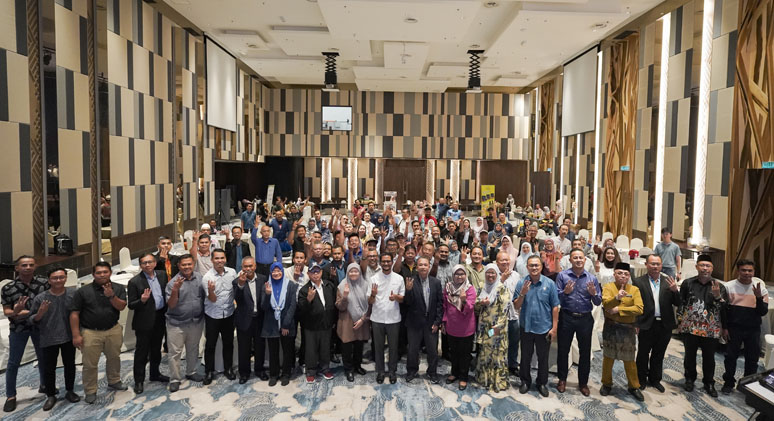The pineapple industry in Malaysia had its heyday, especially during the 70’s when the country was the 3rd leading exporter of pineapples (processed). Currently, while not being a main global player, there are efforts to build up and position the industry to another level. The common varieties grown in Malaysia for mainly the domestic as well as the export markets are Moris (Queen), N 36 (Smooth Cayenne), Josapine (local hybrid) and the popular MD2. There are already plans to increase consumption and markets, especially the export markets for the fruits. While most of the export markets are to Singapore, significant amounts are also exported to the Middle East and China. Currently there are aggressive efforts to expand production of the MD2 variety. Due to the increasing global demand plus local demand for fresh fruit and processed products, and with the capacity to produce good quality fruits, the Malaysian pineapple industry is expected to expand in the next 5 years.
Underpinned by the positive outlook of the industry, the Malaysian Pineapple Industry Board, held a two- and half-day workshop on ‘Outlook and future directions of pineapple development in Malaysia 2030’, on 4 to 6 July 2023 in Johor Bahru, Malaysia, to discuss, formulate and chart strategies to elevate the current situation of pineapple to a more robust and sustainable level in the coming years. The workshop was attended by 100 participants, with about 60 industry stakeholders, including growers, traders, retailers, exporters, processors, agro-entrepreneurs and agrotourism operators.
The workshop was moderated by Mr. Ir. Hj. Riwayat bin Mansor and assisted by Ms. Nazilah binti Ahmad, both from the Malaysia Productivity Corporation (MPC) Associates.

As keynote presenter, the Director General of the Malaysian Pineapple Industry Board, Mr. Mohd. Khairulzamri M. Salleh, said that the production target of 583,543 mtons now to 700,000 mtons in 2025 is in tandem with the production area increase planned from 17,000 hectares currently to 20,000 hectare for the same period. In the longer term, by 2030, growing areas are targeted to hit 25,000 hectares with an anticipated production of 1 million mtons. With improved productivity, farmers’ incomes are also expected to increase from MYR 6,000 per hectare to MYR 8,000 – 10,000 per hectare. The targets set served as a background to the workshop.
The workshop was divided into 5 main components – production, market, processed products, agro-entrepreneurship and agrotourism. Each component was facilitated by invited experts in the various fields. International Tropical Fruits Network advisor, Mr. Yacob Ahmad was facilitator for the market component of the workshop.
Generally, some of the challenges encountered by industry include increasing input costs, labour shortages, lack of mechanization especially on peat soils, lack of new planting areas, shortage of planting materials for suitable varieties, inconsistent and lack of market information, shortage of export grade fruits, and competition from neighbouring and other producing countries.

The strategies and plan of action include better promotion and marketing drives, research and development in areas of varietal development and postharvest practices, best field practices in relation to plant nutrition both on peat and mineral soils, promote and support certification of produce such as GLOBALGAP, ensure continuous production to keep up with export demand and ensuring better quality management as well as compliance to regulations and protocols imposed by importing countries, establishment of efficient farmers and marketing associations, and establishing a premium Malaysian brand.
In his closing remarks on the last day of the workshop, Chairman of the Malaysian Pineapple Industry Board, Sheikh Umar Bagharib Ali, expressed his confidence that with the strategies formulated and planned implementation, Malaysian pineapples will be in a better position to compete with other producers in the global markets, as well as provide for domestic consumption. He also mentioned that a new variety will be introduced soon to boost production that can cater for both markets.

